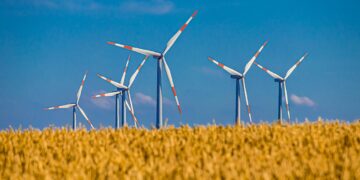Exploring Green Power: Hands-On Renewable Energy Projects for Students
In today’s environmentally conscious world, green power and the use of renewable resources have taken center stage in efforts to combat climate change and reduce carbon footprints. Educational institutions have a unique role in nurturing future generations who are well-versed in sustainable practices. Hands-on renewable energy projects for students not only provide practical knowledge but also inspire innovation and a stewardship mindset towards the environment. This article delves into various renewable energy projects that educators can integrate into their curriculum to enhance students’ understanding and participation in green power initiatives.
Understanding Renewable Energy
Before diving into specific projects, it’s crucial for students to grasp the fundamentals of renewable energy. Renewable energy refers to power generated from natural sources that are continually replenished, such as sun, wind, water, and geothermal heat. Unlike fossil fuels, these resources emit little to no greenhouse gases or pollutants, making them a pillar for sustainable energy development.
1. Solar Energy Projects
Solar Oven
Building a solar oven is a fantastic introductory project that illustrates the power of solar energy. Students can use simple materials like cardboard boxes, aluminum foil, plastic wrap, and black paint. This project teaches the principles of solar heat gain, insulation, and the greenhouse effect. By cooking s’mores or mini-pizzas in their DIY solar oven, students can see firsthand how effective and efficient solar energy can be.
Solar-Powered Cars
For a more advanced project, students can build solar-powered model cars. This project introduces photovoltaic cells (solar panels) and basic electrical engineering concepts. Kits are available, or educators can source materials separately for a more custom build. Students learn about converting sunlight into electrical energy and the considerations needed to power a vehicle.
2. Wind Energy Projects
Mini Wind Turbines
Creating mini wind turbines allows students to explore wind energy. Using simple materials like PVC pipes, a small motor, and balsa wood or cardboard for the blades, students can construct turbines and test them in different wind conditions. They can experiment with blade design, pitch, and number to optimize power output. This project is excellent for understanding aerodynamics and mechanical engineering principles.
Wind Study with Anemometers
Before investing time in building a wind turbine, understanding wind patterns is essential. Students can craft anemometers from cups and straws to measure wind speed. This data collection project pairs well with lessons on weather, climate, and environmental analysis.
3. Hydropower Projects
Water Wheels
Constructing water wheels is a practical way to demonstrate hydropower. This project can be scaled for different age groups; younger students might build basic models with spoons and dowels, while older students might design more complex gearing systems to harness water energy effectively. It’s an excellent exercise in fluid dynamics and mechanical energy conversion.
Model Hydroelectric Generator
For a comprehensive project, students can build model hydroelectric generators. By directing water to spin a turbine connected to a small generator (often a motor running in reverse), students can illuminate LEDs or power small devices. This demonstrates the conversion of kinetic energy from water flow into electrical energy.
4. Biomass Energy Projects
Biogas Digesters
Building a small-scale biogas digester introduces students to the concept of biomass energy. By fermenting organic waste materials, students can generate methane gas, which can be captured and burned as a clean energy source. This project educates students on waste management, microbiology, and chemical engineering.
DIY Algae Biofuel
Exploring biofuels, students can grow algae and then extract lipids to turn into biofuel. This project sheds light on alternative sustainable fuel sources and the biochemical processes involved in lipid extraction.
Integrating Renewable Energy Projects into Curriculum
Teachers can integrate these projects within various subjects:
- Science Classes: Direct alignment with lessons on energy, physics, and environmental science.
- Technology and Engineering Classes: Focus on the design, building, and testing aspects.
- Math Classes: Analyze data collected from experiments and calculations related to efficiency and power output.
- Social Studies and Economics Classes: Discuss the socio-economic impacts and policy considerations of renewable energy.
Benefits of Hands-On Renewable Energy Projects
Hands-on projects have several educational benefits:
- Enhanced Engagement: Students are more engaged when participating in activities that have real-world applications.
- Improved Retention: By doing actual work instead of just theoretical learning, students are likely to remember concepts better.
- Skill Development: These projects develop critical thinking, problem-solving, teamwork, and technical skills.
Conclusion
Introducing students to hands-on renewable energy projects is not just a step towards a greener planet, but also a way to empower the next generation with the knowledge, skills, and passion to innovate in the field of sustainable energy. Schools taking the initiative to incorporate these practical learning experiences are setting the stage for more environmentally responsible and technologically adept future leaders.







